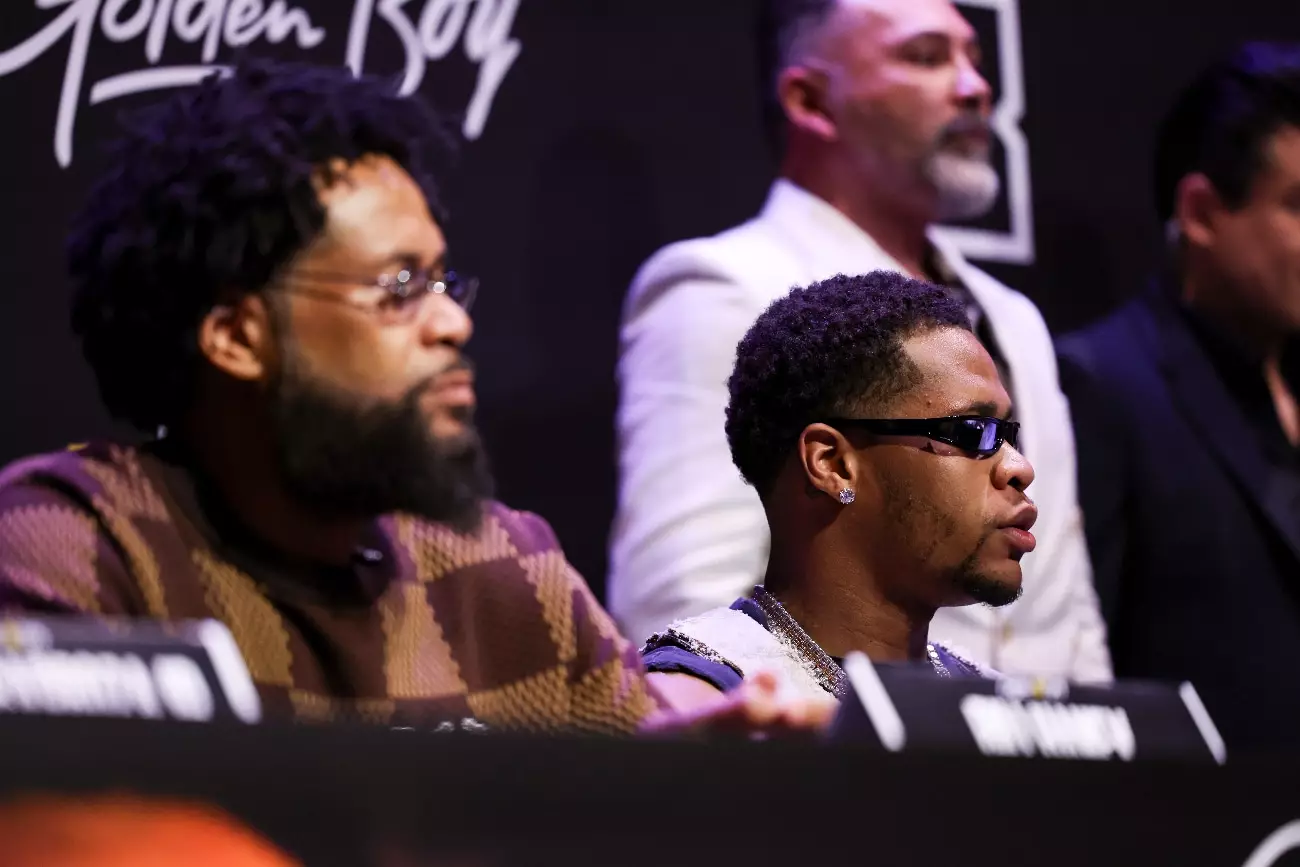In the realm of professional boxing, conversations surrounding rematches often become a complex dance of power dynamics, strategies, and psychological posturing. The ongoing discussions between Ryan Garcia and Devin Haney, particularly with Haney’s father, Bill Haney, acting as a pivotal figure, embody this intricate web of negotiation. The recent ultimatum issued by Bill Haney adds a level of tension to a potential rematch that could have implications far beyond the boxing ring.
At the heart of the negotiations is Bill Haney’s bold statement demanding that Ryan Garcia enroll in the Voluntary Anti-Doping Association (VADA) testing program within 48 hours. This directive poses a significant challenge for Garcia, who is keen on securing a rematch after his previous encounter with Devin Haney, which ended in a loss for him. By imposing such a timeline, Bill Haney is not merely laying down the law; he is attempting to assert dominance in negotiations and dictate the terms under which the rematch may occur.
From Garcia’s perspective, acquiescing to this demand may appear as a sign of weakness. It gives the impression that he is bending to Haney’s will, something that could set a precedent for future negotiations. If Ryan capitulates, he may unwittingly encourage Team Haney to impose even more constraints or conditions, potentially derailing his hopes of a favorable matchup. Such scenarios underscore the high-stakes nature of their rivalry and paint Garcia as the underdog even in negotiations.
Revisiting Past Conflicts: The Weight of History
The emotional backdrop of their initial fight on April 20th is another factor fueling this narrative of power. Garcia has been vocal about feeling disadvantaged during their last bout, suggesting that Haney “lay heavy” on him throughout the match. Such remarks reveal the fragile ego that often exists in competitive sports, where previous encounters shape future behaviors. Garcia’s insistence on his determination to defeat Haney in a rematch suggests that he views this fight not just as a professional obligation but as a personal vendetta.
With these dynamics at play, the prospect of a rematch offers both fighters a chance for redemption. For Garcia, a win would not only avenge his previous loss but would also serve as a significant career milestone, reinforcing his position as a top contender in the lightweight division. Conversely, a loss for Haney could jeopardize his standing and call into question his capabilities as a fighter. In professional boxing, narratives of strength, weakness, and personal rivalry can amplify fan interest and financial stakes, turning a simple rematch into a highly publicized spectacle.
In today’s digital age, athletes must navigate the realm of social media alongside their boxing careers. Ryan Garcia boasts an impressive following of 12 million on Instagram, a metric that highlights his significant influence and marketability. This digital presence is not merely for show; it translates into tangible financial benefits and fan engagement. Bill Haney’s comments about Garcia needing to prove himself may be met with skepticism when considering Garcia’s leverage in the boxing world, driven by his ability to attract audiences.
In addition, the mention of competitor Gervonta Davis further complicates the landscape for Garcia. If rumors of a possible fight with Davis in 2025 are true, they could distract Garcia from pursuing a rematch with Haney. This potential detour adds an additional layer of complexity to the negotiations, forcing Garcia to weigh immediate opportunities against long-term aspirations.
The crux of the matter lies in the power dynamics that exist between the fighters and their teams. Bill’s alacrity in issuing demands places Ryan at a crossroads. While he may desire a rematch, aligning too closely with Team Haney’s conditions could undermine his own position. History has shown that fighters who concede too much may find themselves relegated to lesser roles—effectively becoming a stepping stone for others.
As the deadline approaches, the question remains whether Garcia will accept Haney’s terms or push back against this perceived pressure. This standoff encapsulates the broader themes of control, influence, and the unpredictable nature of negotiations in professional boxing. For fans and analysts alike, the choices made in the coming days will not only shape the fighters’ futures but also serve as a commentary on the nature of competition in a sport where both the physical and psychological elements intertwine in profound ways.

